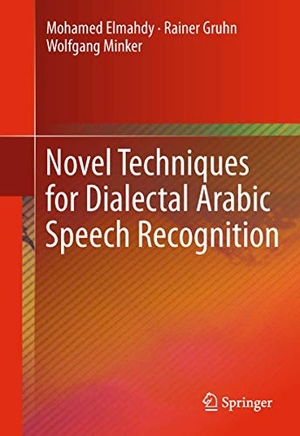Für statistische Zwecke und um bestmögliche Funktionalität zu bieten, speichert diese Website Cookies auf Ihrem Gerät. Das Speichern von Cookies kann in den Browser-Einstellungen deaktiviert werden. Wenn Sie die Website weiter nutzen, stimmen Sie der Verwendung von Cookies zu.
Cookie akzeptieren
Mohamed Elmahdy / Wolfgang Minker / Rainer Gruhn
Novel Techniques for Dialectal Arabic Speech Recognition
- Springer New York
- 2012
- Gebunden
- 132 Seiten
- ISBN 9781461419051
Novel Techniques for Dialectal Arabic Speech describes approaches to improve automatic speech recognition for dialectal Arabic. Since speech resources for dialectal Arabic speech recognition are very sparse, the authors describe how existing Modern Standard Arabic (MSA) speech data can be applied to dialectal Arabic speech recognition, while assuming that MSA is always a second language for all Arabic speakers. In this book, Egyptian Colloquial Arabic (ECA) has been chosen as a typical Arabic dialect. ECA is the first ranked Arabic dialect in terms of number of speakers, and a high quality ECA speech corpus with accurate phonetic transcription has been collected. MSA acoustic models were trained
Mehr
Weniger
zzgl. Versand
in Kürze